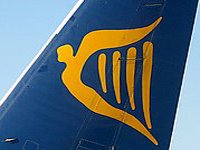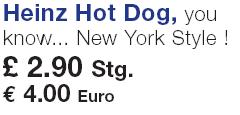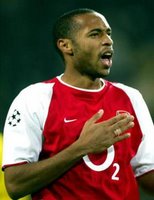The update on our city rivals Hearts should really be an annual affair – but events this season have proven so insane that it’s already past time to take stock. As we left season 05/06, we were in the managerial “Ivanauskas Era”. A handful of weeks into season 06/07, things have become so confusing that it’s not even clear which era we are in. So far, this is how the 06/07 season is shaping up:
The Ivanauskas Era (duration: 7 months)
Graham Rix lasts four months before being replaced in March 2006 by Valdas Ivanauskas. Following winning the Scottish cup at the end of last season, Ivanauskas takes Hearts to second in the league behind Celtic, within 3 points as late as 24th September 2006. On Thursday 28th, Sparta Prague eliminate the Jambos from the UEFA cup, ending their European involvement for the year. On 15th October Hearts concede 2 points in a 2-2 draw to Hibs, followed by a 2-0 home defeat to Kilmarnock on 21st October, and it’s at this point that things start to unravel.
Ivanauskas refused to talk to the media following the Kilmarnock loss, and immediately flew to Lithuania to talk with owner Romanov. It was allegedly agreed that the manager would take a 2-week break to recover from stress. On 23rd October Eduard Malofeev takes the reigns as a caretaker manager, and as Ivanauskas indicates (3rd November) that he is not ready to return. At this point, Hearts began to officially refer to his absence as “indefinite”, which seemed to imply that the Ivanauskas era had come to an end.
The Malofeev Era (duration: 6 weeks)
Within 3 days the dawn of this bright new era, Racing Genk in Belgium ask FIFA to ban Hearts from any further activity in the transfer market, claiming that they are due 80% of the €835,000 fee allegedly agreed for the sale of Mirsad Beslija to Hearts.
Then the real craziness begins.
On 27th October, Romanov is reported to have told the Hearts first team that they would be “all for sale” should they fail to win against Dunfermline. Club captain and Hearts legend Steven Pressley appears with other core players Paul Hartley and Craig Gordon, and collectively issue a public statement lamenting the situation at the club. Highlights from Pressley include this: “There is only so much coaching staff, a captain and certain colleagues can do without the full backing, direction and coherence of the manager and those running the football club… I have worked hard to retain unity. However, due to circumstances, morale understandably is no good and there is significant unrest in the dressing room”. Former chairman George Foulkes, SNP leader Alex Salmond, and the Scottish players union back the statement by the three key Hearts players.
On Saturday 28th October, Hearts play Dunfermline at Tynecastle (with Pressley, Hartley and Gordon all featuring), and draw 1-1. On the 31st, Julien Brellier indicates he may leave Hearts due to lack of first team action (Breillier having been one of the most contentious issues during Romanov’s reign, with the owner apparently unwilling to allow successive managers to select the player). Saturday 4th November sees Hearts go down 2-1 to Celtic in Glasgow. On 7th November, in one of the most surreal happenings (to date), Hearts send their “Sporting Director” Alex Koslovski to field a standard press conference alone. Normally acting as the translator for Malofeev, Koslovski is unable to answer any questions from the press regarding tactics, formations, or players. When questioned on the appearance of FBK Kaunas (also owned by Romanov) manager Eugenijus Riabovas at the Hearts training ground, Koslovski asserts that Riabovas is in Edinburgh only for “professional improvement”, and not to replace Ivanauskas.
On 13th November Falkirk draw 1-1 with Hearts with captain Pressley absent, and the following day, Hearts confirm that Riabovas is to take the reigns are Hearts as “Temporary Head Coach”, whilst insisting that Pressley was absent from the Falkirk game as he declared himself mentally unfit to play. There are later allegations that Pressley heard of a plot to oust him from the captaincy involving the Lithuanian members of his team, and subsequently refused to make himself available to play.
On 19th November Hearts go down 0-1 to Rangers in Edinburgh, again without Pressley.
Protests erupt outside Tynecastle resulting in several arrests of Hearts fans.
On Tuesday 21st, Riabovas promises Lithuanian media that he will be traveling to Edinburgh in December to take the position as Hearts head coach.
The Riabovas Era (duration: 0 days)
On 24th December, Hearts announce that Valdas Ivanauskas is returning to retake the reigns in Gorgie.
The Ivanauskas Era II (duration: ?)
On Saturday 25th as Hearts draw 0-0 with Inverness Caley Thistle with Pressley finally playing, fans “declare peace” with Romanov, after a meeting of fans groups are assured that Mr Romanov “has no influence on team selection”, and that “Steven Pressley remains captain of the club”. Romanov goes on to refer to Pressley as the “cement” in the Hearts organisation. Sporting director Koslovski insists that Pressley simply had to prove his readiness in training before reselection. On 2nd December, Pressley is omitted from the side again, and Hearts draw 2-2 with St Mirren – the players union hits out at the “unconventional” treatment of Pressley. 2 days later, Edgaras Jankauskas refutes any dressing room plot to oust the captain, and on 8th December, Ivanauskas promises Hearts are close to a resolution with Pressley.
The next day, Hearts beat Motherwell 4-1, and later that evening, it is announced that Pressley is leaving Hearts “by mutual consent”. In the same manner as most of the exiting staff during Romanov’s tenure, it appears that confidentiality is a condition of whatever agreement is in place between the parties.
15th December sees Craig Gordon named as the new Hearts skipper, and Ivanauskas confirm that Paul Hartley “has a future at the club” (presumably he “has a future” in the same way that Pressley was “the cement”). Both players have separate disciplinary meetings with Hearts management, and both remain silent following these meetings on what was discussed.
On 20th December, an open letter on the Hearts Supporters Trust website lambasts Romanov, accusing him of acting “like a playground bully”, and turning the club into a “playground freak show”.
So as Hearts go into the festive end of the season, take a breath, wrap yourself in tinsel and get the popcorn out – there’s plenty more entertainment where this came from!







